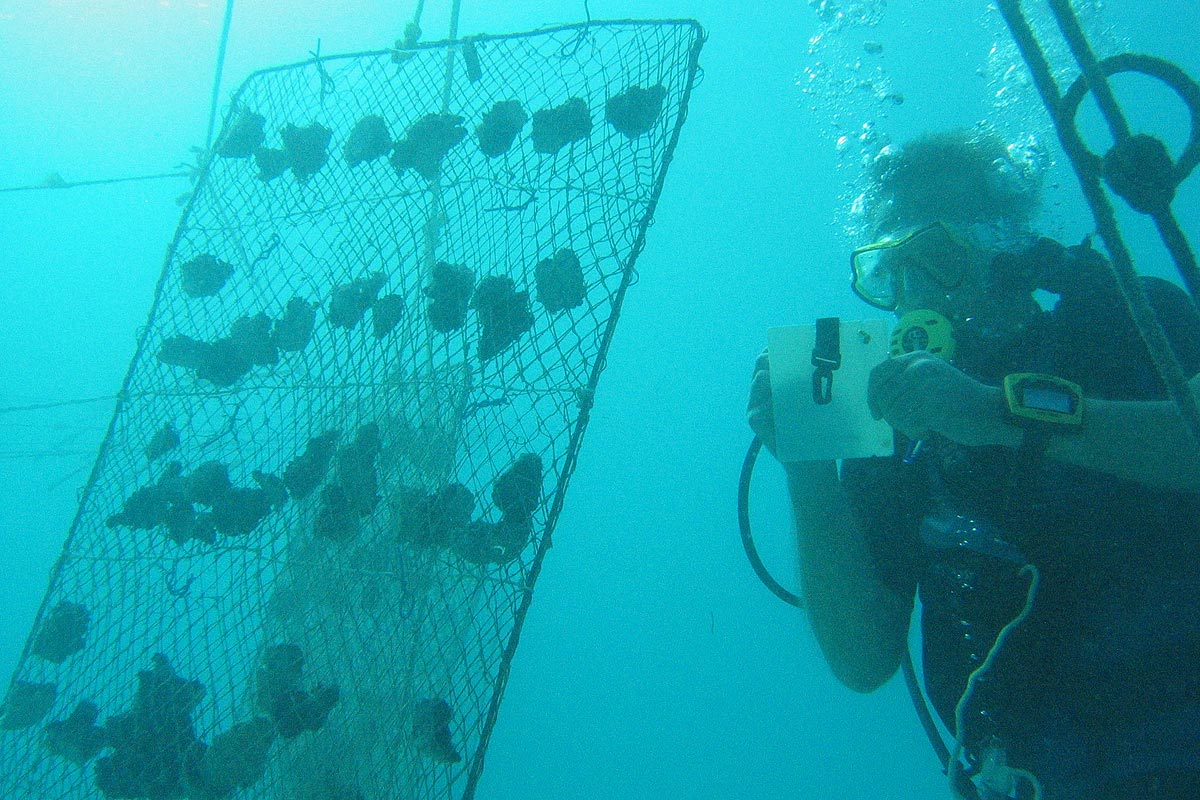Make dreams come true, awaken self-confidence, develop ownership
20.09.2018
"Sometimes things are very close to our everyday life, without us knowing how we can earn money with it. We have always lived with sponges. But only now have we learned how they can help us to improve our lives and the lives of our children."
This statement is by Shemsa, who answered a few questions from a graduate of the local university. His small study gives insight into what occupies our sponge farmers. What dreams do they fulfil with the income from their new business? Read the answers from our sponge farmers below.
Or the story of Okala, our local project manager. He had a new idea which he is now implementing. The project is so interesting that an Italian film team featured it.
Watch the trailer for BAHARI SALAMA and support the final production of the film.
>> https://www.marinecultures.org/de/news/-/id_mod_news/167
Kazila – the frontrunner:
"This house is why so many sponge farmers are following my example"
Most of our trainees are single mothers with children. They have no chance of finding a job. In addition, they are often forced to return to their family after their divorce, where they are often only tolerated but not really welcome.
Nasir
"First the villagers whispered about the work with the sponges. But then they told us directly. All this is because of the sponge farming and our harvest this year. I will never forget the day when Kazija came and told me about sponge farming."
Nasir is now also building her own house (Nasir l. / Kazija r.)
Shemsa
"Thanks to my training as a sponge farmer, I can feed my family, build my own house and we have electricity. Even if one never achieves all set goals, I've already achieved half of mine."
Mtumwa
"The life of my family was a big challenge every day. But a short time after I started at marinecultures, I was able to start a small business selling vegetables, start building my stone house and feed my family with a better diet."

Mariam
"I have not yet achieved my dreams. But I am thankful that marinecultures can help me. My big dream is to replace my hut with a solid stone house."
"Now I already have an improved toilet and a septic tank."
Asha (L)
"One day someone told me about the sponge farms. I didn't have time to ask. But I immediately started looking for a person who could assist me with the children when I was at work. In the end, I found someone who would take responsibility if I left the house."
Haira (R)
"Working as a sponge farmer helps me to pay school fees, feed my family and is enough for other personal needs. My expectation for the future: To become a good salesperson of various products."
Zulfa
"It was difficult when my sister told me about the sponge farmers, due to the health problems in my family. I fought for my little child to get medical attention and after his eye problems were solved satisfactorily, it was time for me to join the farmers."
"My girl (pictured) also has problems with her eyes. What I earn with the sponges enables me to treat her eye problems. Even though I am the mother of this family and I am confronted with different problems of my children, I have found something that I wished for. I bought a small cupboard for the family room with a dressing table."
Salama
"The conditions in my family have encouraged me to try alternatives to planting seaweed. I joined the sponge farmers. I am moved by the hope to be able to reduce our existential problems thanks to this great opportunity." 
It is nice to see how the self-confidence of the women is strengthened thanks to their education and their self-employment. They are proud and they are being talked about. They have shed their shyness as women at the bottom of society and speak up. Maybe they also have self-confidence because they are one of the few women in the village who can even swim!
Swimming training, Nasir (3rd from r.):
"It is important to be able to swim. Especially us who live directly on the coast and because we are involved in the activities in the sea. If someone has an accident at sea, you should know how to help. I am happy to know how to swim."
Watch the trailer for BAHARI SALAMA and support the final production of the film.
>> https://www.marinecultures.org/de/news/-/id_mod_news/167


